This Way Forward with Jeremy Torz and Steven Macatonia, Union Coffee
Good & Proper Partner Union Coffee has long been at the forefront of the speciality coffee industry. Founded on the principle of marrying high-quality speciality coffee with responsible sourcing, Union aims to make coffee better for everyone from farmers all the way to coffee drinkers. For the third interview in our This Way Forward series, we spoke to Union founders Jeremy Torz and Steven Macatonia about the ideas that birthed Union, the importance of supporting communities near and far, and where they are focusing their efforts most this year.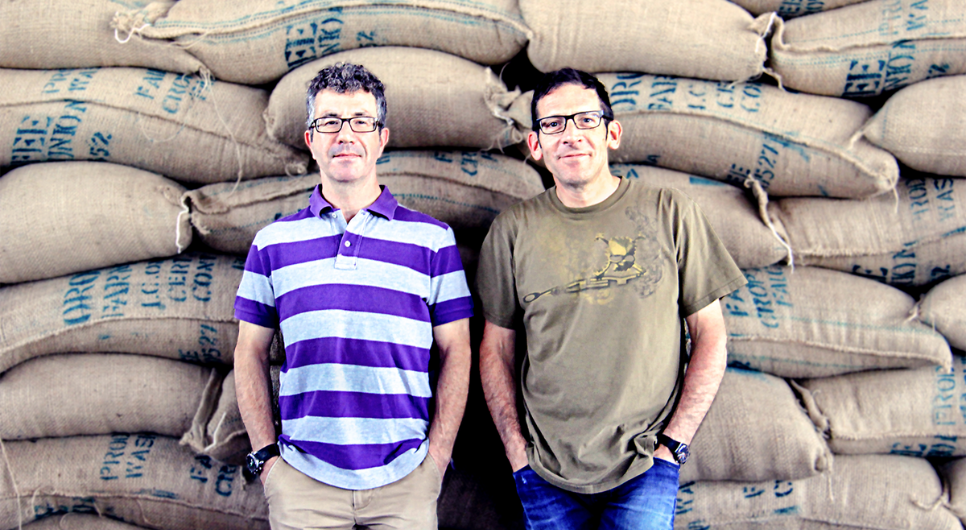
Can you tell us more about Union and how the journey began all those years ago?
Steven and I had become inspired by the quality of coffee we saw in the San Francisco Bay area whilst living out there in the early 1990s. It’s often easy to forget but the coffee scene we enjoy today in the UK didn’t exist back then.
We set up the first boutique roastery in the UK in 1995, leading the charge just as the food and drink scene here began to awaken.
Our small business soon grew through word of mouth but it was our participation in the first coffee chain, The Seattle Coffee Company, that powered us forward. Together we changed forever the attitudes, habits and language of coffee here in the UK and there was no looking back.
In 1998, our by then joined up companies were taken over by Starbucks who were looking to enter the UK market.
We were proud of what we had achieved in just a few hectic but short years but decided to leave and follow our own path. We weren’t specifically thinking of starting again in coffee but every conversation we had would end up right back there. This time our starting point for the business alongside quality was working long-term to grow our farming communities who we had always wanted to engage with but didn’t have the scale, experience or opportunity previously.
In 2001 we headed out to Guatemala to find out more about these communities and were shocked at what we saw; third and fourth-generation coffee families couldn’t afford to produce coffee and stay on their land.
The low global market price was wreaking havoc amongst communities and we realised that, as a roaster – there in the middle between producer and consumer – we had a chance to bring these two disparate ends of the chain together with empathy and a vision for trade, not aid. Specifically better quality, whilst establishing a coffee meritocracy for farmers instead of being at the mercy of globalised traders. And Union was born.
“It’s important to never stop asking questions and to challenge the depth and extent of how you see yourselves addressing the goals you have previously set.”
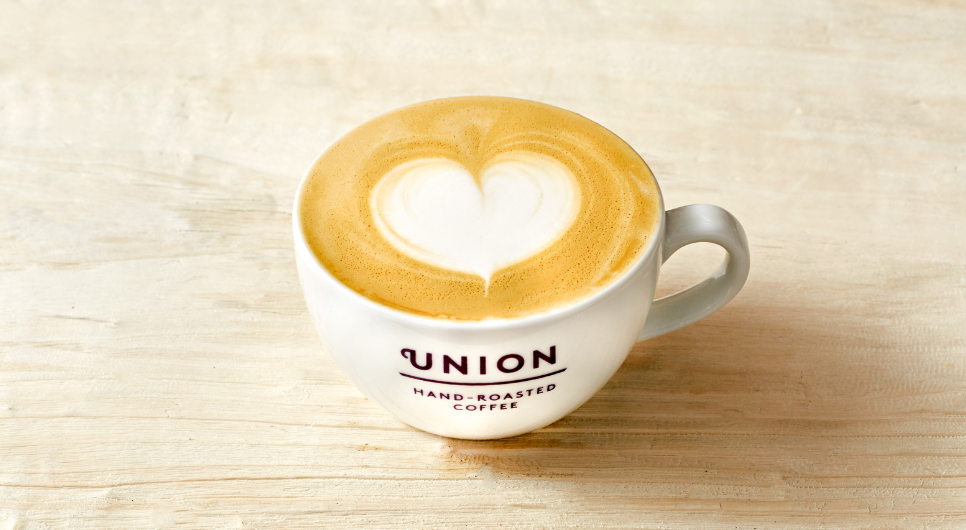
You had a lot of your own Sustainability initiatives in place already at Union. Why was it important for you to certify and join the B Corp community?
It’s important to never stop asking questions and to challenge the depth and extent of how you see yourselves addressing the goals you have previously set.
B Corp has a broader set of principles and criteria compared to most of the supply chain certifications that historically arose from particular ‘single issue’ thinking e.g. trade justice, environmental protection or labour practices. It’s more of a holistic look at the business and also one that involves making decisions that inform and develop how not only customers but crucially employees and suppliers believe in and help support the business in achieving its purpose.
The act of having to recertify every three years also keeps thinking current and again, broader than the business’ founding principles. Maintaining an effective impact strategy shouldn’t be a matter of responding to ‘what’s in fashion’, but different issues do rise up the agenda over time depending on how the world is doing. Dynamic thinking and response has to have a place when reviewing progress.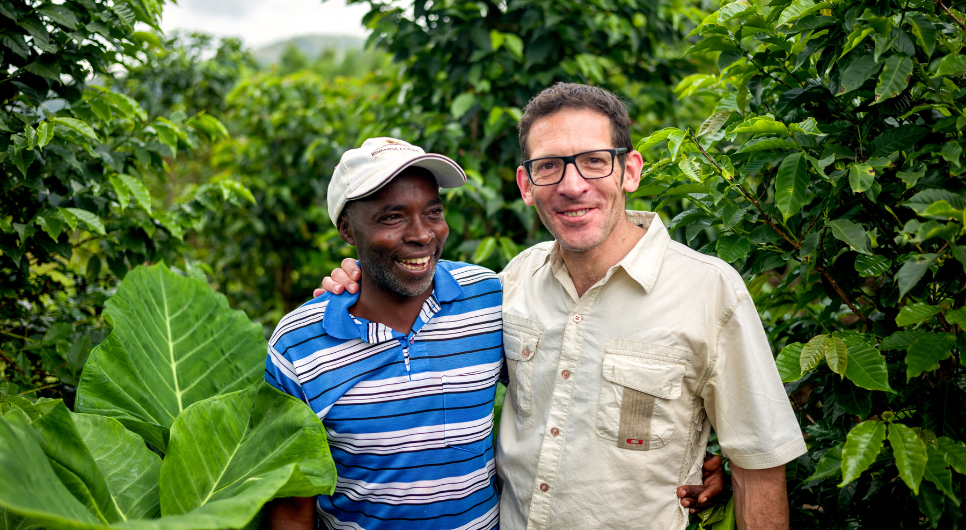
Community was an area of B Corp's B Impact Assessment that you scored particularly highly on. How do you support the communities where you source your coffee? What about communities closer to home?
Our Impact Strategy aims to join up the communities we first envisaged bringing together, from bean to cup. Specifically that involves our communities at origin through to our employees and communities here in the UK.
For many years we have focused on generating impact amongst the most disadvantaged in our particular supply chain – those at origin. The biggest way we achieve this is by paying a premium for our coffee to support sustainable trading. We also work alongside our partners to improve the quality of coffee throughout the production process – from planting the tree to processing the cherries and to try and futureproof the sustainability of farming.
Alongside this, some of our other initiatives include:
- Working with women coffee farmers at two cooperatives in Rwanda. Both cooperatives have developed coffee produced by women farmers. We pay a “women’s premium” for this coffee, which is paid directly to the women’s group who decide how best to use it within their community. Some examples of what they have chosen to invest the money in are cows, goats and chickens. This is useful for livelihood diversification and livestock manure improves soil health for coffee production.
- Our bee project in Guatemala, which provided training to women coffee farmers to construct beehives and develop bee husbandry techniques. The bees can increase fertilisation of coffee trees, increasing the yield of coffee from each tree. The bees take nectar from the coffee tree flowers, producing coffee blossom honey which the women sell at the local market.
- Our Head of Ethical Trade teaches workshops to smallholder farmers in Rwanda and Guatemala about budgeting and how to manage their household income more efficiently.
- We run workshops and training about how to reduce deforestation at Yayu forest, Ethiopia. Yayu is one of the world’s last remaining wild coffee forests. Farmers are taught how to preserve and maintain the forest, but also how to earn an income from the wild forest coffee that grows within the forest zone.
Closer to home, we work with one of our key clients, Company of Cooks and Well Grounded, not-for-profits that help long-term disadvantaged people here in the UK with training and gaining jobs in coffee and the hospitality industry. The partnership has spawned a new blend called Community that is used in locations such as The South Bank Centre and Royal Opera House amongst many superb locations where Well Grounded program graduates deliver some of the best coffee beverages in London. The coffee has also gone on sale in Waitrose, Sainsburys and Tesco, where every pack sold generates a donation to help Well Grounded advance their own mission.
Internally, we also have our volunteering program where we offer paid ‘days off’ for our teams so that they can give their time to support charities or organisations that have a meaning to them or their communities.
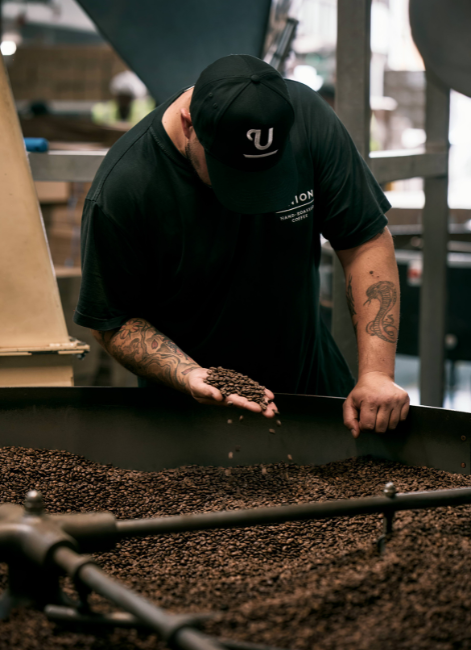
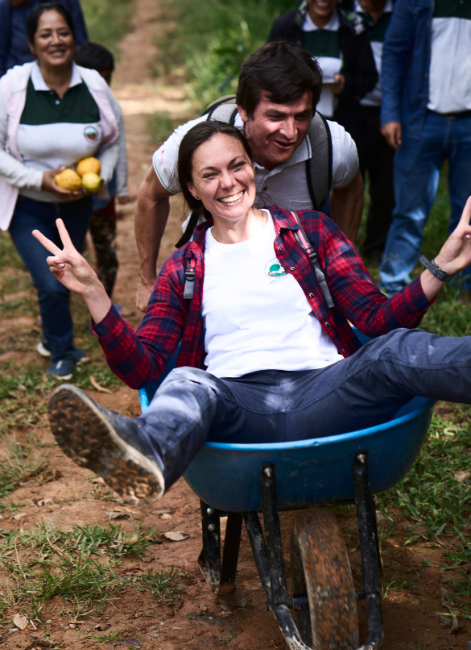
What is the biggest challenge you’ve faced in delivering on these goals?
We do see an increasing amount of greenwashing out there in the world. We have always had a policy of being 100% honest and truthful – even if it sometimes means admitting that we’ve not yet met a target.
Work in progress – as long as it is structured and meaningful is OK – so we have over the years invested a lot in working with our communities to monitor and evaluate our impact. Whilst this adds to the time on the ground at origin and therefore the costs of what we do, we believe it builds strong relationships with our community and delivers greater impact.
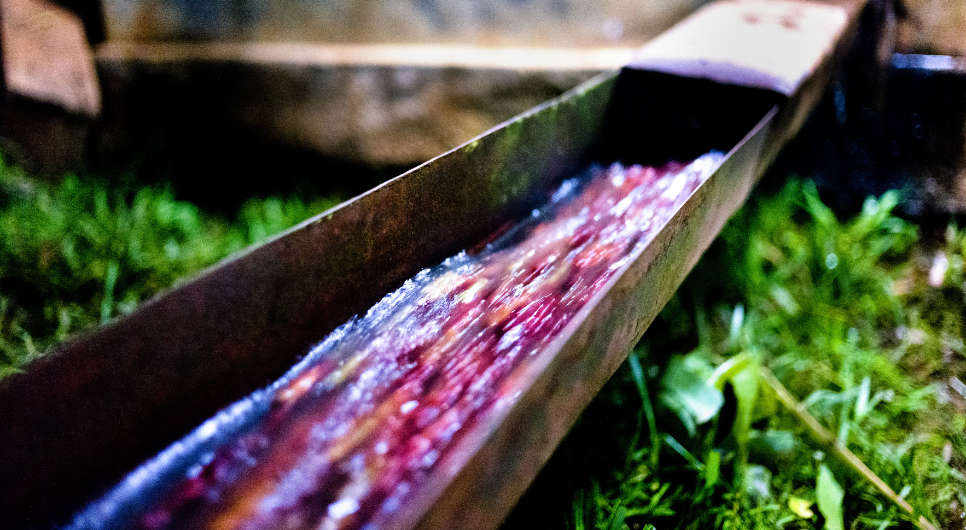
Words of advice you would give to other organisations, whether aspiring B Corps or New Bs, on how they can best support and engage with the communities in which they operate, hire from, and source from?
If you are considering embarking on B Corp certification, don’t treat it as another tick box exercise, but as an opportunity and tool to look more holistically at your business to meaningfully achieve your purpose. It involves making decisions that touch not just your supply chain but how you engage with your employees and customers.
If you are not at the stage where you are considering becoming a B Corp, that’s also fine. My advice would be to get really clear on your business purpose and how your strategy supports this across the communities you operate in, hire from and source from, and take the time to reflect on how you want to do business.
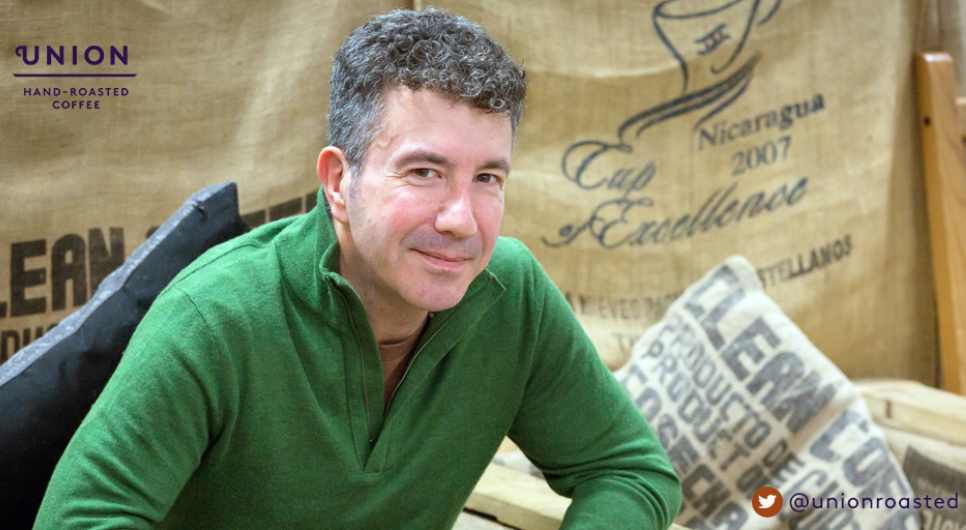
With this month’s theme being all about ‘This Way Forward’, we’d love to know what is the biggest thing you’re focusing on improving this year at Union?
Over the years, we have gained insights into the communities where we operate, and with each insight comes an opportunity to help deliver the vision these amazing communities have for themselves by developing joint projects that we help to fund.
We have decided to take all the insights we have gathered over our more than 20 years and launch the Union Direct Trade Fund. The Fund will have its own governance structure and independent advisors on the board with a set of principles that are aligned to our overall impact strategy and the United Nations Sustainable Development Goals (SDGs). We will be reporting further on this in our annual Impact report each year.
If you're looking for ethically-sourced, hand-roasted coffee, you must give Union a try. You can order get roasted-to-order coffee directly to your home via the Union website or enjoy freshly-brewed cups in cafes and restaurants across the UK.

 WHOLE LEAF TEAS
WHOLE LEAF TEAS
 CAREFULLY SOURCED
CAREFULLY SOURCED
 FREE DELIVERY OVER £25
FREE DELIVERY OVER £25
 WORLDWIDE SHIPPING
WORLDWIDE SHIPPING
